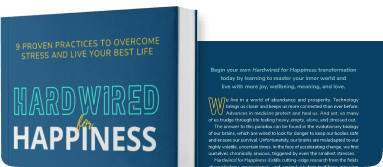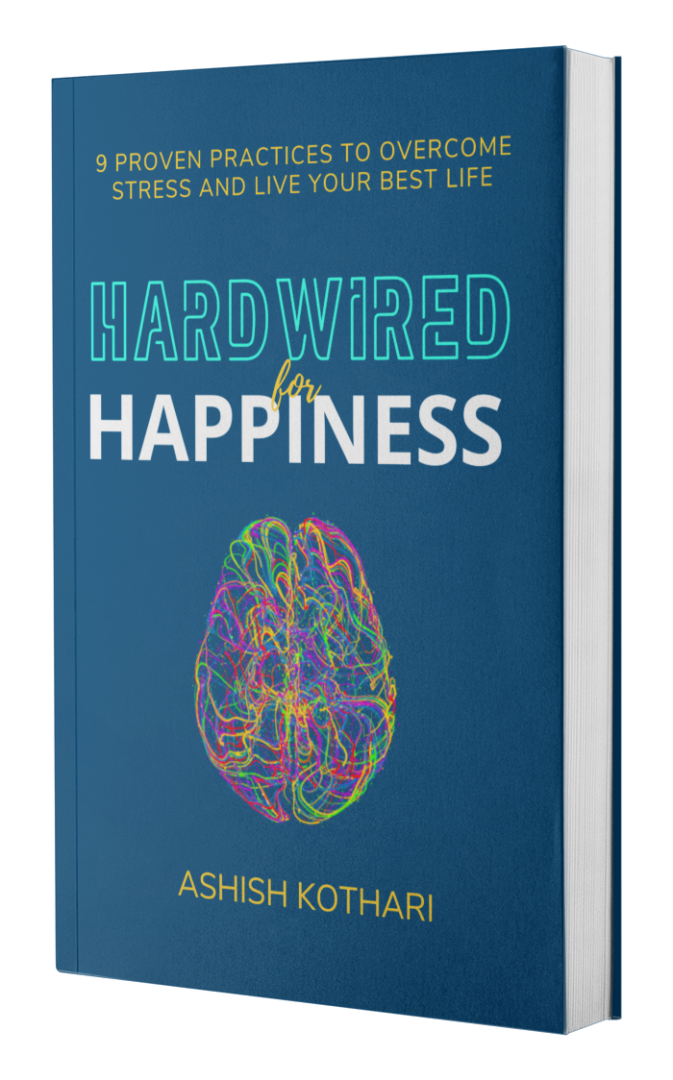How to Overcome Self-doubt

Let’s face it, every leader has that little voice in their head, overcome self-doubt, the inner critic, that can be a real pain. It’s that nagging doubt that makes you question your decisions, your abilities, and sometimes even your achievements. It can make you overly cautious, kill your willingness to take risks and squash any creative sparks you might have.
And it’s not just about you. Your self-doubt can spill over into your team’s dynamics, creating an environment where fear and doubt overshadow confidence and innovation. But here’s the good news: you can get a handle on this.
In this article, Ashish and Jennifer McCollum, CEO of Linkage, have some solid advice on how to overcome your self-doubt.
“Once you become aware of your inner critic, you recognize the need to change, and how it’s mostly negative, not positive, and often deprecating and defeating. You cannot ignore it. But you can quiet it.”
– Ashish Kothari
From being a first-time leader to becoming a CEO, Jennifer faced numerous challenges, including learning to engage others, hiring people better than herself, and dealing with the loneliness of leadership. Each phase required her to confront and manage her inner critic, the voice that shook her confidence and decision-making abilities.
By acknowledging her self-doubt, seeking feedback, and surrounding herself with a supportive advisory board, she was able to evolve her leadership style and thrive in each new role.
Redefining Happiness Beyond Achievements
Many of us grow up with a conditional approach to happiness, believing it’s tied to achievements or specific outcomes. This flawed mindset, where happiness is contingent on ‘if-then’ scenarios, can create a cycle of constant striving without fulfillment. It’s a trap where achievements don’t bring the joy we expect, and we’re left chasing the next goal, never truly content. This is where the inner critic often amplifies our doubts and fears, making us question our worth and capabilities.

It’s about time we realize that happiness and achievement are independent variables. As per Jennifer and Ashish, happiness is a state of being, not a destination reached through accomplishments. By shifting our mindsets, we can find joy in the journey itself, not just the destination, leading to a more fulfilling and balanced life, free from the paralyzing grip of self-doubt.
How to Quiet Your Inner Critic
The inner critic is a voice that can be so loud and paralyzing, it prevents leaders from pursuing their dreams and aspirations. This is what the “become” commitment aims to fight against, Jennifer shares. By acknowledging and understanding the root of self-doubt, leaders can transform it into a guiding force, enabling them to reconnect with their true core. Here’s how:
- Become Aware – Recognize the presence of your self-doubt and its impact on your thoughts and decisions.
- Pause and Reflect – Take a moment to understand the messages from your inner critic and their origins.
- Be Compassionate – Show kindness to yourself, understanding that self-doubt stems from a place of protection, not truth.
- Shift to Curiosity – Replace fear and doubt with curiosity about your abilities and potential and reconnect with your true self.
“That inner critic can be so loud that it can prevent us from achieving our dreams. Acknowledge it much more quickly so that you can return to the core of who you really are.”
– Jennifer McCollum
The most common victims of inner criticism are women leaders, especially as they are often expected to show strong, confident traits often seen in men, while also being kind and caring like women are traditionally expected to be. This is a problem Jennifer highlights in her book “In Her Own Voice,” which she calls the “double bind.”
The Art of Inclusive Leadership
The double bind is a tough challenge for women leaders and those from underrepresented groups. It forces them to balance staying true to themselves with fitting into a narrow, often masculine, leadership mold. This overlooks important feminine qualities like empathy, vulnerability, and teamwork. When leaders conform to this limited view, we lose out on diverse ideas and approaches, which is a problem in our constantly changing world.
“Inclusive leadership and purposeful leadership are inextricably linked. Inclusive leadership behaviors, which often align with feminine energy like transparency, openness, vulnerability, authenticity, and inclusion, are what’s expected of leaders today.”
– Jennifer McCollum
That’s why Ashish’s idea of mixing both ‘masculine’ and ‘feminine’ qualities in leadership makes a lot of sense. It’s not about picking one over the other, but about using the best of both worlds for a more inclusive leadership. This way, leaders can be more themselves, and we get a variety of styles and perspectives that can make our businesses stronger and more ready to adapt to new challenges.
“Cultivating the feminine energy is an invitation for everyone to grow. Effective leadership is purposeful leadership and purposeful leadership is inclusive leadership. These are all parts and parcels of the same.”
– Ashish Kothari
Managing your own internal biases is a big step towards inclusive leadership. It’s about leading in a way that’s true to you and values everyone’s unique contributions. Internal biases shape our decisions and often create a conflict between our career goals and personal life. For many, this leads to a constant battle with our self-doubt and the pressure of societal expectations. By recognizing and understanding your internal biases, you can make conscious, informed choices that align with your values and goals, and lead with authenticity.
Conclusion
There’s a big gap in leadership roles for women and other groups that don’t get enough representation. They’re part of the workforce, but you don’t see many of them in top positions. Without diverse and inclusive leaders, companies miss out on different ideas and perspectives. This can make the workplace feel less supportive and inclusive for everyone.
Jennifer McCollum’s work at Linkage tackles this. They help individuals, especially women, to deal with challenges like self-doubt and internal biases. For companies, they focus on making the workplace more inclusive and fair. This means training leaders to be better mentors and making sure everyone has a fair shot at moving up. It’s time we make the workplace better for everyone, so all kinds of talent can shine.
As the CEO, Jennifer oversees the strategic direction and global operations of Linkage, a renowned leadership development firm. With the mission to change the face of leadership, Linkage has dedicated over 30 years to improving leadership effectiveness and equity in hundreds of organizations globally. Jennifer has recently released her own book, “In Her Own Voice: A Woman’s Rise to CEO, Overcoming Hurdles to Change the Face of Leadership.”
Learn more about Jennifer at her LinkedIn.
Listen to the podcast with Ashish, Anil, and Jennifer below.
Access and subscribe to all of the episodes of the Flourishing Edge Podcast here.
Visit the REWIRE Program powered up by the HAPPINESS SQUAD Community and experience your shift within your 30-day risk-free trial today. Cultivate your Self-Awareness, Gratitude, Purpose, Community, and personal growth more through the 9 Hardwired for Happiness practices. Integrate simple and proven micro-practices grounded in the science of happiness and neuroscience of habit formation in 5 minutes a day.
Make Flourishing Your Competitive Edge.


